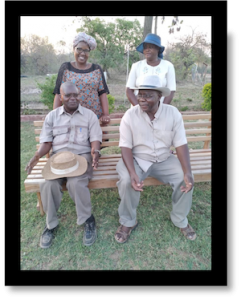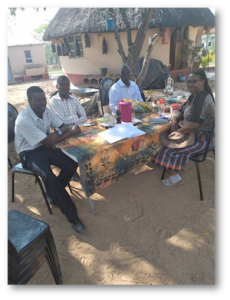“Enjoying the fullness of life, experiencing enhanced livelihoods and prosperity can be achieved through an integral transformative process in harmony with the entire ecosystem which is the essence of humanity!”
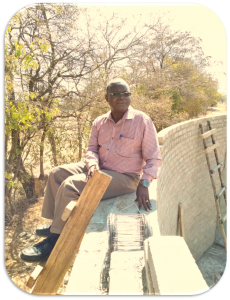 I was born in the Lion (Shumba) clan in a rural Buhera district in Zimbabwe where I was exposed to and experienced the traditional African cultural way of life. My mother was a peasant farmer and my father was a professional driver. As the first born in a family of six, I learnt to be responsible for my family and my community at a very tender age which would later become my passion as I grew up. Both of my parents valued education and they sacrificed to send me to school with the hope of a better life for myself and the entire family.
I was born in the Lion (Shumba) clan in a rural Buhera district in Zimbabwe where I was exposed to and experienced the traditional African cultural way of life. My mother was a peasant farmer and my father was a professional driver. As the first born in a family of six, I learnt to be responsible for my family and my community at a very tender age which would later become my passion as I grew up. Both of my parents valued education and they sacrificed to send me to school with the hope of a better life for myself and the entire family.
I really fell in love with schooling and my personal ambition was to become an engineer. Unfortunately, life took a different turn when my father got married to a second wife and he abandoned my mother and my siblings. This meant that I had to exit school after attaining Ordinary level in order to fend for the family from the meager earnings as a Motor Mechanic apprentice. Having converted to Christianity and accepted Christ Jesus as my personal saviour one of the important lessons I learnt was to love and respect my parents and humanity in general. This helped to embrace my father despite him having abandoned us and God blessed me in diverse ways. I got married to Tabeth who was of the Heart (Moyo) clan, who was a primary school teacher and a devout Christian. We had three children, one son Gladman and two daughters Irene and Sandra. Unfortunately, Tabeth passed away. I later remarried to Christina, also of a Moyo clan who was working for one of the biggest Hotel Groups, the African Sun Hotels.
During the course of my career, I pursed further education, attaining numerous academic and professional qualifications including three Masters degrees in MSc in Training, MA in Leading Innovation and Change and MA in International Business Management. This quest for knowledge and education helped me to develop my career as I moved up the corporate ladder assuming various positions and roles until I was appointed the Executive Director – Supply Chain for Delta Corporation, the biggest beverages and public listed company in Zimbabwe.
When I retired from formal employment, I concentrated on building my business portfolio, drawing on the many years of experience in the corporate world. My desire was to build a solid economic foundation for my children and grandchildren as their inheritance and as part of my legacy.
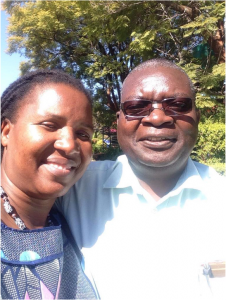
This later became the focus of my PhD research to innovation with the TRANS4M/Da Vinci programme. This research journey was the most transformative and valuable programme that I have ever pursed. Collaborating with Christina as my key co-researcher, we focused on transforming the Buhera community by bringing in our three businesses: King Lion, a bus company, HPC Africa, an engineering consultancy company and Vaka Concrete, a company involved in the manufacture of concrete building products (bricks and pavers of different types).
My initial dream of creating a great legacy (nhaka in Shona) became my community and societal outer calling. I focused on how to eradicate poverty, hunger and marginalisation among the rural folk, especially the Buhera community, by developing a socio-economic model anchored upon the African indigenous practices blending with exogenous knowledge leading to the transformation of an African homestead (kumusha) into an integral rural business entity which I termed the Integral Kumusha. The aim was to ensure self-sufficiency at a household level by bringing together nature, culture, technology and enterprise. The Integral Kumusha emerged as an alternative to the Western Corporate firm which focused on technology and enterprise and bereft of nature and culture.
Extrapolating this concept at a societal or national level, my desire is to achieve self-sufficiency and economic prosperity by creating a unique type of an economic system that is based on legacy (nhaka) and integrality (nature, culture, technology and economics), hence the term Nhakanomics. For me, creating a nhaka economy (nhakanomics) ensures that we have an economic system that resonates with the indigenous African people while at the same time incorporating exogenous aspects. This would be achieved substantively by incorporating anthropology, psychology, ecology, sociology, management and economics thereby creating an alternative to Western Capitalism or neo liberal economic system, an alternative that is unique to Africans and the Global South. I am convinced that this approach will disprove the notion that there is no alternative to capitalism and that the world should stop viewing economics from a monocultural and monodisciplinary perspective of “one size fits all”.
I believe that as Africa we are able to bring to the global economic arena our own economic model that speaks to our own unique needs which the capitalistic approach has failed to deliver to literally all African countries ever since attaining their independence from colonisation.
